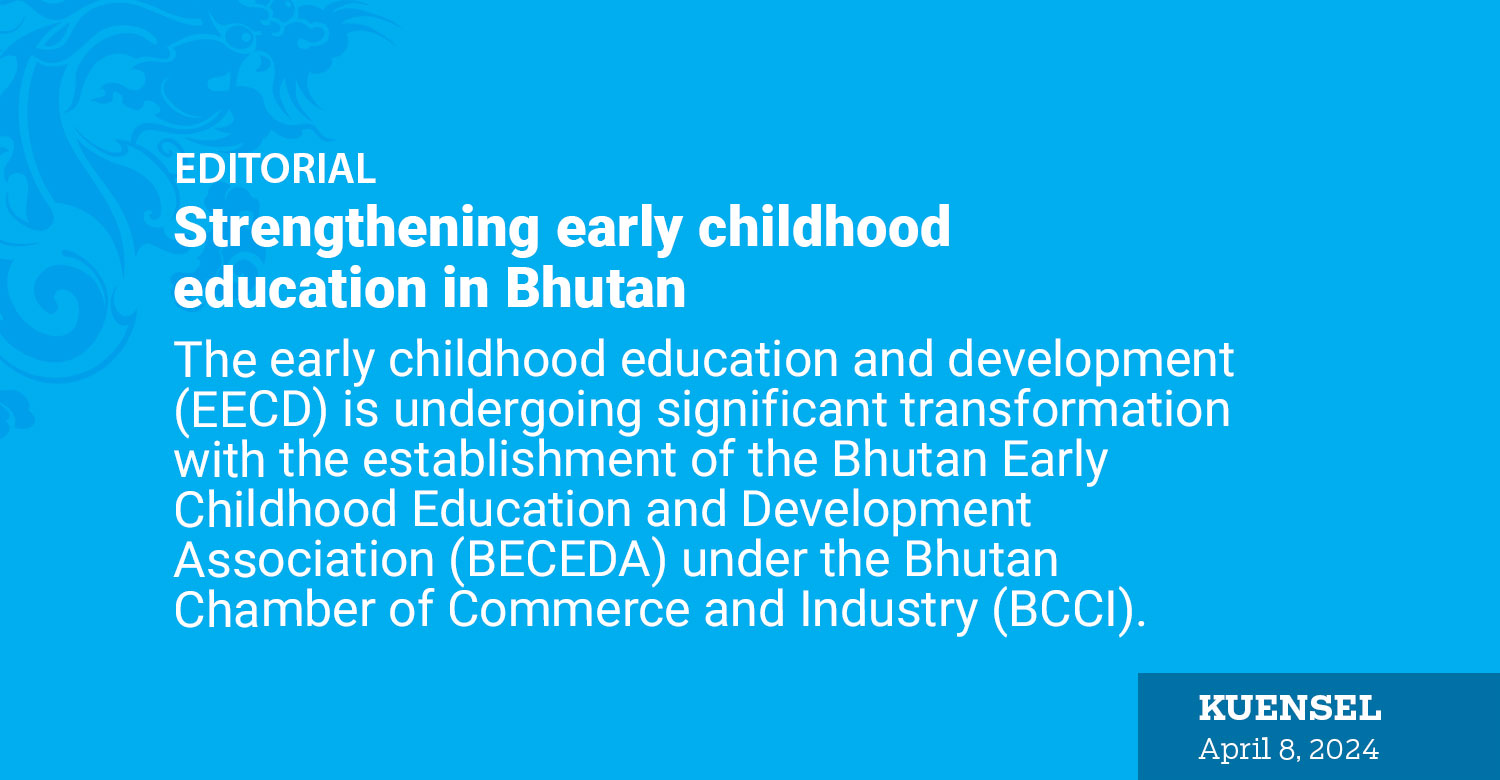The early childhood education and development (EECD) is undergoing significant transformation with the establishment of the Bhutan Early Childhood Education and Development Association (BECEDA) under the Bhutan Chamber of Commerce and Industry (BCCI).
There are growing expectation from this office because this initiative marks a crucial step in addressing the prevailing gaps and challenges faced by private ECCD centres across the country.
ECCDs play a vital role in shaping the foundation of children’s learning and development. Private ECCDs face a lot more problems. Yet they grapple with obstacles hindering their growth and professionalism.
A key issue is the lack of robust collaboration and connectivity among ECCDs, leading to isolation and fragmentation within the sector. This disconnect hampers the sharing of best practices, professional development, and advocacy efforts, impeding the overall quality of early childhood education services.
When services struggle to give their best, what more can be expected in terms of our children’s education and care?
We believe that through BECEDA, ECCD centre owners now have a platform to unite, collaborate, and collectively address the challenges confronting their sector.
By fostering networking opportunities, knowledge-sharing forums, and joint projects, BECEDA aims to elevate the standards of early childhood education and development in private ECCDs. This is good news.
The Association should serve as a unified voice to advocate for the interests of private ECCD centres to contribute to the advancement of ECCD services nationwide.
During the inaugural annual general meeting of BECEDA, the founder, Jamtsho, emphasised the association’s role in bridging the gap between private ECCDs and the government.
Such collaboration is essential for fostering mutual understanding, addressing sectoral challenges, and enhancing the overall quality of early childhood education.
Director General of the Department of School Education, Karma Galey, underscored the importance of BECEDA as a vital link between the government and private ECCDs. He acknowledged the risks and challenges inherent in running educational enterprises, emphasizing the shared responsibility of safeguarding children’s well-being and the future prospects.
The government, as part of its 13th Plan initiatives, has outlined several measures to support and strengthen ECCD services. These include plans for training and professional development of ECCD facilitators, the introduction of Bachelor of Education and Postgraduate courses in ECCD, and exploration of alternative models such as home-based facilities.
With over 700 ECCD centres operating in Bhutan, of which more than 60 are privately owned, the establishment of BECEDA heralds a new era of collaboration, innovation, and excellence in early childhood education.
By building bridges between stakeholders, fostering partnerships, and advocating for policy reforms, BECEDA paves the way for a brighter future for Bhutan’s youngest learners. There is a lot more we can do for because it is about nurturing our future citizens.


